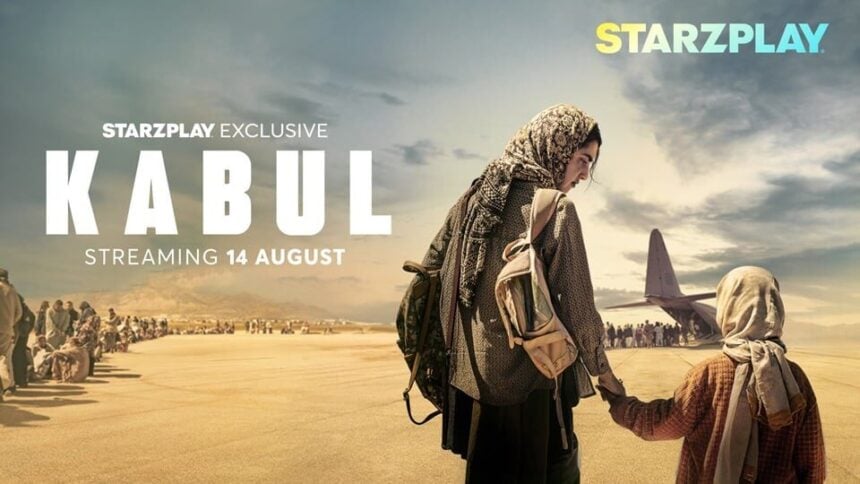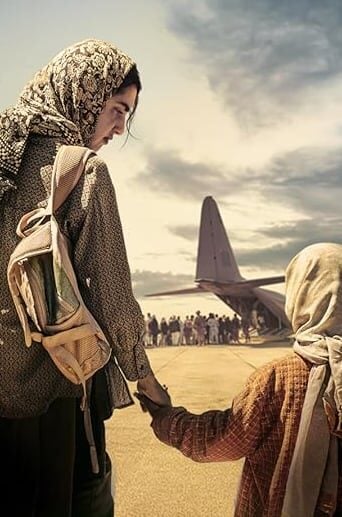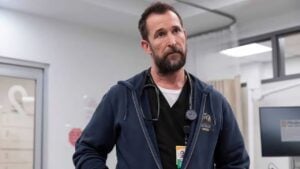Kabul (2025), now streaming on Starzplay, is a fascinating watch. The show dramatises the U.S. withdrawal from Afghanistan and the fall of its capital, aiming to turn one of the most globally visible collapses of the modern era into prestige television.
From its first episode, the series throws you into a city sliding out of control, where daily routines are suddenly charged with dread and the line between safety and danger blurs in real time. It’s a slow burn, but one where the atmosphere itself does most of the talking.
Kabul thrives on its atmosphere and emotional stakes, offering a grounded portrait of collapse that lingers, though its slow burn and restrained performances keep it from being truly great.
- Production design and atmosphere are outstanding
- Strong cultural commentary on women and civilians caught in the collapse
- Effective slow-burn tension in key scenes
- Pacing stumbles in later episodes with repetitive subplots
- Some diplomatic storylines veer into cliché
- Some tepid performances break immersion
This is a European co-production involving France, Germany, and other countries, directed by Kasia Adamik and Olga Chajdas, with writing contributions from Olivier Demangel, Thomas Finkielkraut, and Joé Lavy. Despite its regional roots, Kabul stands shoulder to shoulder with bigger-budget prestige dramas.
The production is polished, the pacing deliberate, and the visual tone carefully controlled. The series moves between overlapping storylines: embassy staff scrambling for control, soldiers stuck at vanishing checkpoints, families watching their options close in by the hour.
At the centre of the show is the Nazany family. Zahara (Darina Al Joundi) is a prosecutor investigating Taliban-linked terror. Her husband, Baqir (Vassilis Koukalani), scrambles to protect his loved ones. Their daughter, Amina (Hannah Abdoh), just after her first transplant surgery, must choose whether to run or stay. And their son, Fazal (Shervin Alenabi), once a checkpoint commander, finds himself pressed into service in unexpected ways. Around them, diplomats, soldiers, and intelligence operatives (French, US, Italian, German) all try to make sense of the chaos.
The Nazany family gives the show its emotional spine. Zahara is a clear standout. Darina Al Joundi plays her with a calm intensity that works well with the writing, even if some scenes leave you wanting more raw emotion. Amina, played by Hannah Abdoh, becomes more compelling with each episode. Her storyline has urgency without being overly melodramatic, and her perspective adds depth to how the show handles generational and cultural tensions. Zahara’s husband, Baqir and son Fazal serve more as support players, and while they’re consistent, they don’t evolve as clearly as Zahara and Amina do over the course of the series.
Visually, the show absolutely delivers. Even though it was shot in Greece, the sets and cinematography give Kabul a striking believability. The streets feel lived in, the checkpoints feel tense, and the embassy interiors look appropriately claustrophobic. The show is expensive in the right way. The world-building is sharp without being flashy. You can see the tension in how people move, in clipped conversations, in the way everyone pauses when a door creaks open.
But production can only carry you so far. This is where things get more complicated.
The writing aims for a slow burn, which on paper is a solid strategy. The collapse of a city isn’t just gunfire and explosions; it’s bureaucracy fraying, families splintering, and a creeping sense that safety is an illusion. The show captures that idea well in theory. The Nazany family’s unravelling gives you emotional grounding: Zahara’s position as a prosecutor confronting Taliban-linked terror, her husband Baqir trying to keep the family together. It’s intimate and compelling, until it isn’t.
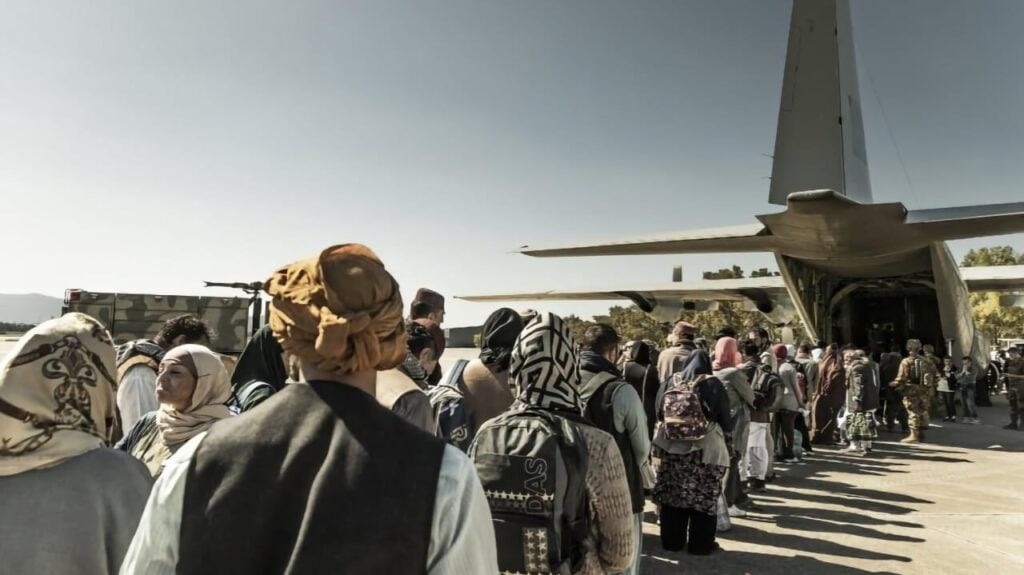
Kabul knows how to set a scene: an evacuation convoy waiting under curfew, a prosecutor deciding whether to burn evidence, a family meal that might be their last. All of these are ripe for nail-biting suspense. And for a while, they work. But then the payoff doesn’t quite match the buildup; there’s a lack of overarching tension and dread that I missed here. There are tense moments, yes, and some drama arcs genuinely invest you; for instance, Amina’s struggle is particularly heartbreaking. However, the show rarely lets the tension snowball into something unbearable. It’s content just to simmer.
Maybe that’s intentional. Perhaps the show wants to capture the surreal flatness of watching history collapse on live TV. After all, the fall of Kabul wasn’t a cinematic shootout; it was people queuing at the airport, diplomats sending last-minute emails, families making impossible choices in real time. In that sense, the lack of fireworks is its own commentary. Still, as a television show, it risks underwhelming. A slow burn needs some sparks.
The international and political subplots also have less impact. Diplomats and military officials are dealing with the evacuation, but these storylines aren’t as memorable. Some of the performances are stiff, and many of the scenes feel like they exist to deliver exposition. Compared to the Nazany family’s arc, the foreign characters mostly come across as functional rather than lived-in.
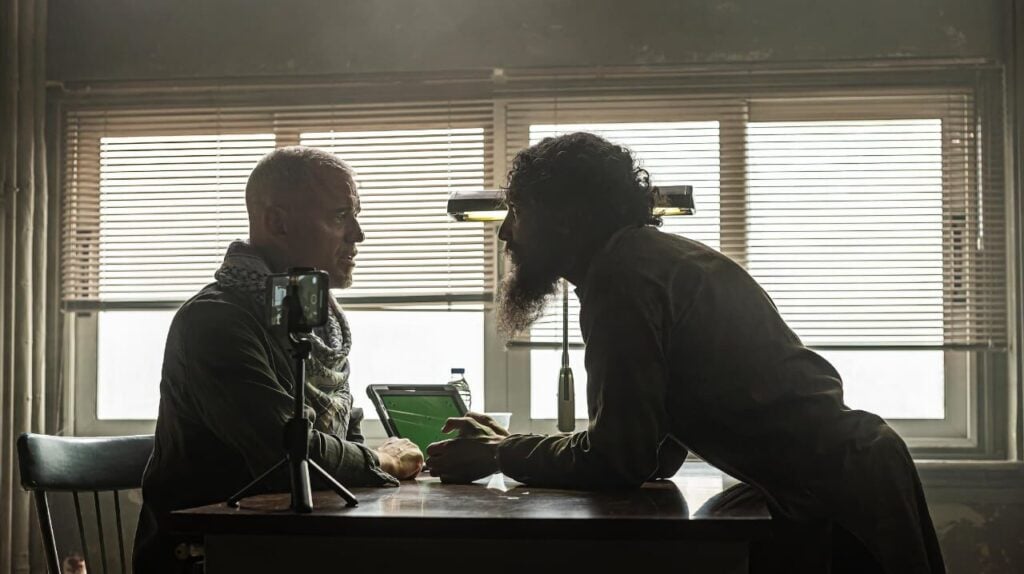
What redeems Kabul is its atmosphere, built on that impeccable production. There’s also cultural commentary woven throughout, sometimes subtle, sometimes not. Kabul doesn’t just stage the fall as a geopolitical chess match; it reminds you of the civilians who got turned into pawns. Women, in particular, face stark choices, and the show doesn’t soften that reality.
Amina’s arc hits hard because it mirrors the generational shift in Afghan women’s experiences, as they fight for agency only to see it curtailed overnight. Zahara’s arc reflects how professional women bore the brunt of the Taliban’s resurgence, their roles suddenly stripped of meaning. These themes give the show weight, even if the dramatic delivery is uneven.
The strongest scenes for me weren’t the ones with overt conflict. I was glued to the moments where the stress builds just enough to unsettle you, like a rushed phone call or a change in tone between characters. A last-minute plan made without a guarantee of safety. It’s in those smaller beats that Kabul finds its rhythm. The show isn’t structured around big plot twists or reversals, but rather from watching certainty slowly drain out of a situation, until all that’s left is instinct and guesswork.
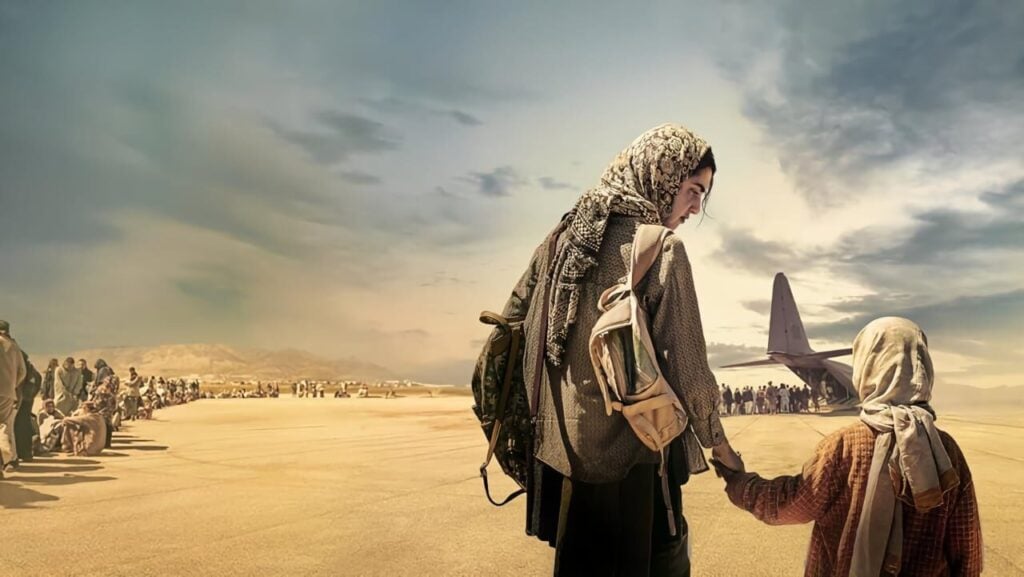
The geopolitical angle can be hit-or-miss. At times, the depiction of foreign diplomats feels like a greatest-hits playlist of clichés: tense calls with Washington, moral arguments in dim embassy rooms, generals trying to spin chaos into strategy. It’s not untrue to life, but it’s familiar enough that it risks sliding into parody. Homeland already mined this territory, and Kabul doesn’t always differentiate itself. When it does, it’s usually by pulling the camera back to Afghan civilians rather than Western players, and those moments stuck out to me.
Kabul is a story about how spectacle has replaced substance in our understanding of history. The U.S. withdrawal was streamed, memed, and dissected in real time. It became an “event” rather than an ongoing reality for the people still living there. The series tries to bridge that gap: to turn spectacle back into lived experience. But in doing so, it sometimes forgets that television itself is spectacle, and spectacle needs peaks, not just plateaus.


